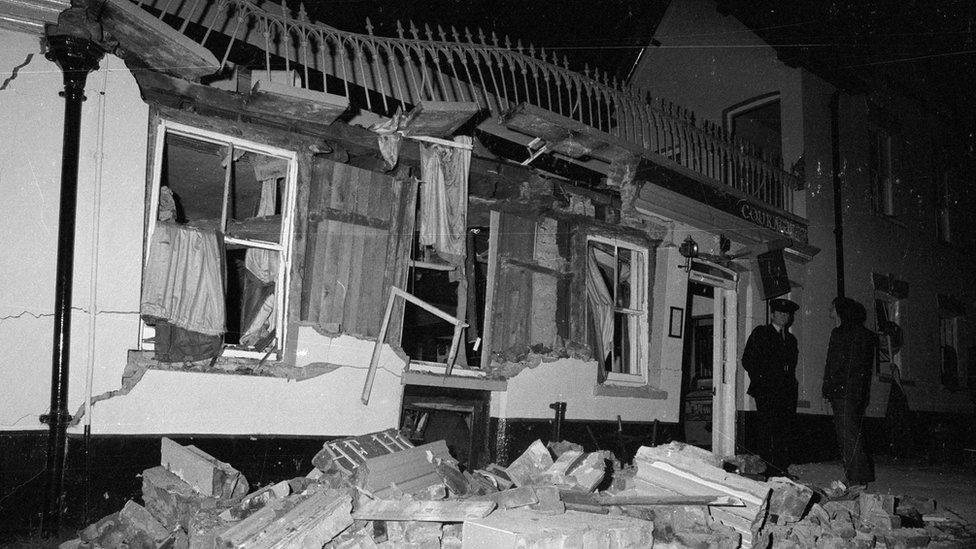Service marks 50 years since Guildford pub bombings
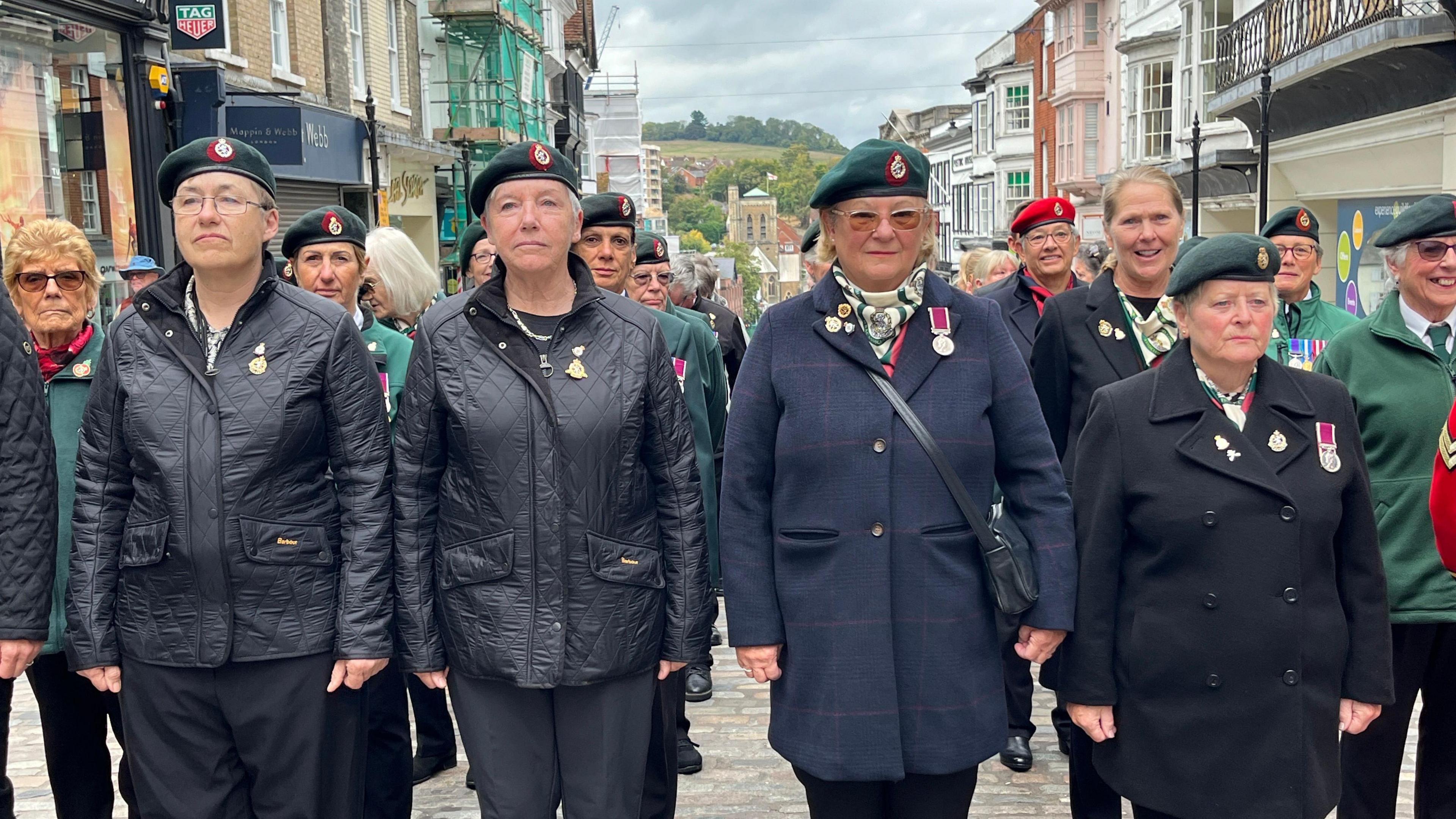
Guests included representatives of the Women's Royal Army Corps Association and the Scots Guards Association
- Published
Families of victims and survivors have attended a memorial service to mark 50 years since the Guildford pub bombings.
The IRA detonated two bombs in town centre pubs on 5 October 1974 - the first exploded at the Horse and Groom, North Street, killing four soldiers and a civilian, while a second was set off 30 minutes later at the Seven Stars, on Swan Lane.
A service was held at Holy Trinity Church on Sunday, following a procession where those affected by the tragedy were joined by civic leaders.
Right Reverend Andrew Watson, the Bishop of Guildford - who led the service - said people were “still grieving” half a century on.
Listen: It is 50 years since the IRA detonated two bombs in pubs in Guildford
Those who died after the first bomb exploded at the Horse and Groom were soldiers Ann Hamilton, 19, Caroline Slater, 18, William Forsyth, 18, and John Hunter, 17, plus civilian Paul Craig, 21.
The second bomb went off 30 minutes later at Seven Stars on Swan Lane.
Bishop Watson said those affected had been left with “a sense of injustice and a sense of uncertainty” after The Guildford Four and Maguire Seven were wrongly convicted of the attack in one of the UK’s biggest miscarriages of justice.
An IRA terror cell later claimed responsibility but no-one has been convicted.
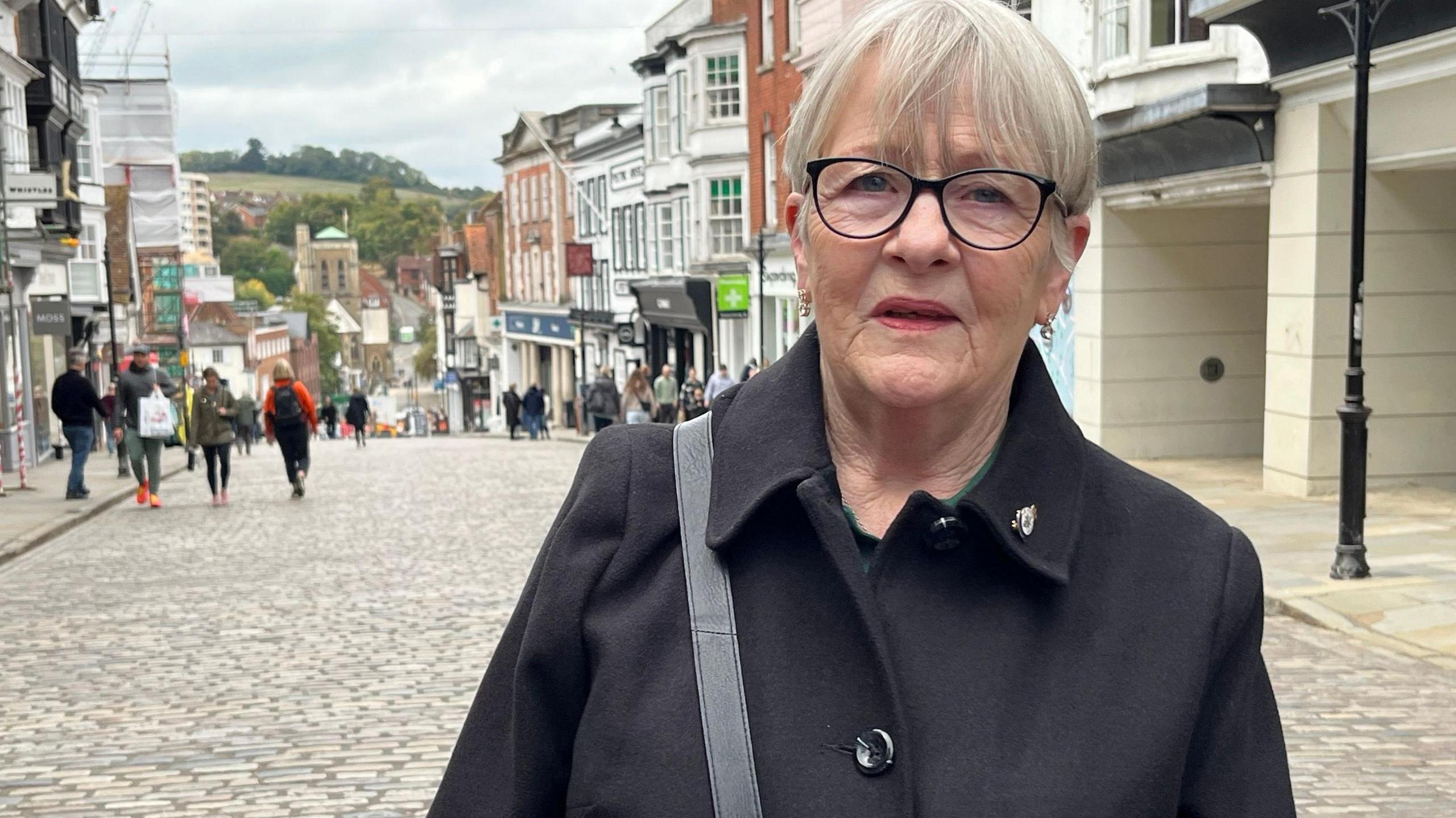
Marion Prescott was in the Horse and Groom when it was bombed
Marion Prescott, a former soldier, said she was in the Horse and Groom as an 18-year-old Women’s Royal Army Corps (WRAC) recruit at the time of the bombing.
She told BBC Radio Surrey the scene after the explosion had been “chaos”, adding that a friend “said she thought I was dead because I was lying on the floor and I wasn’t moving”.
Ahead of the service, Ms Prescott said she thought it would be “emotional but very healing”.
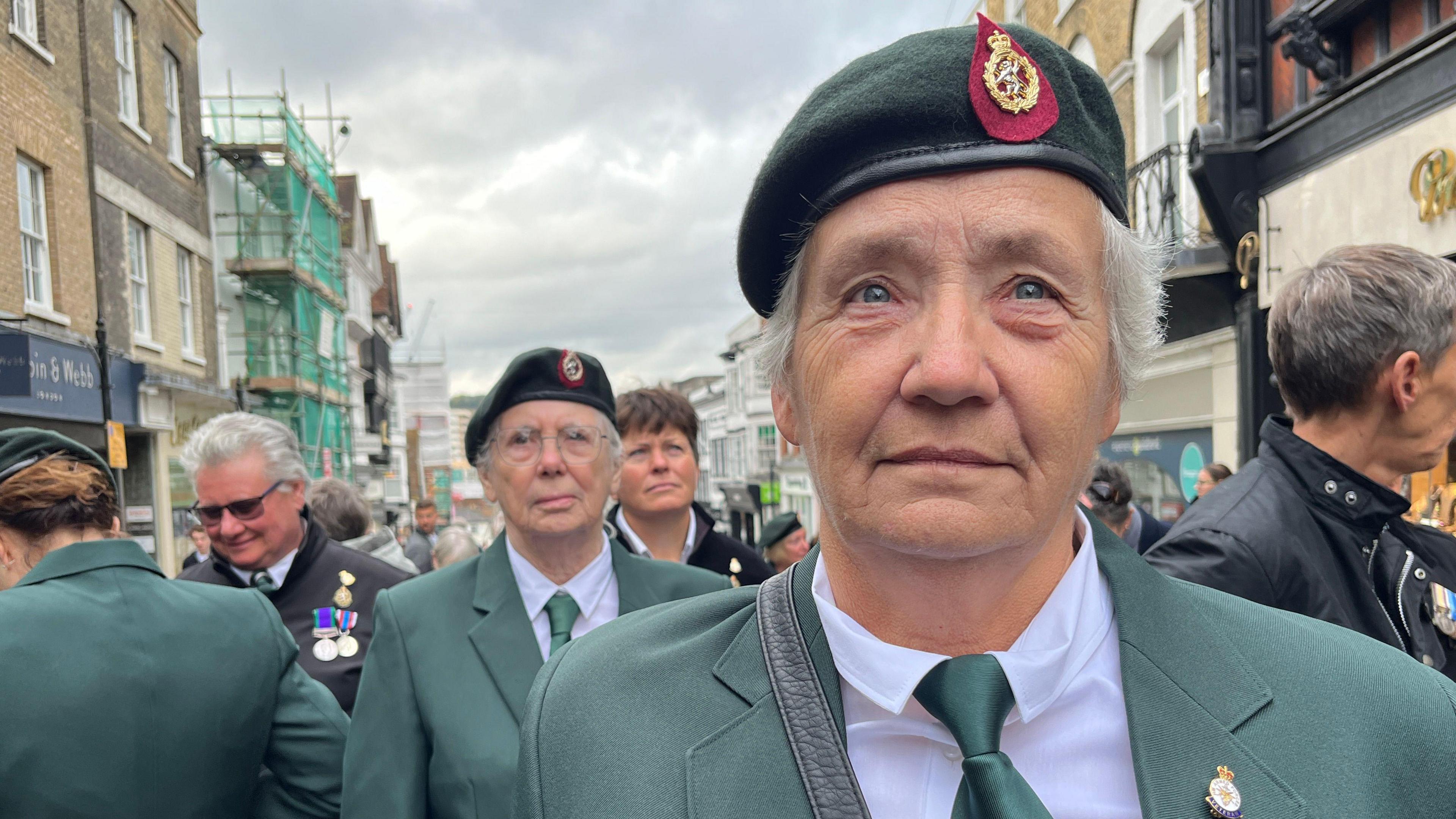
Josie Hopkins described being in Guildford on the day of the bombings as "very scary"
Josie Hopkins, also a WRAC recruit at the time, said she was at its barracks on the day.
“All I can really remember is all the other recruits rushing in to use the payphones…they were trying to phone home,” she said.
She said at a later passing out parade for the recruits, “there were girls there in wheelchairs and scarred... It was very emotional".
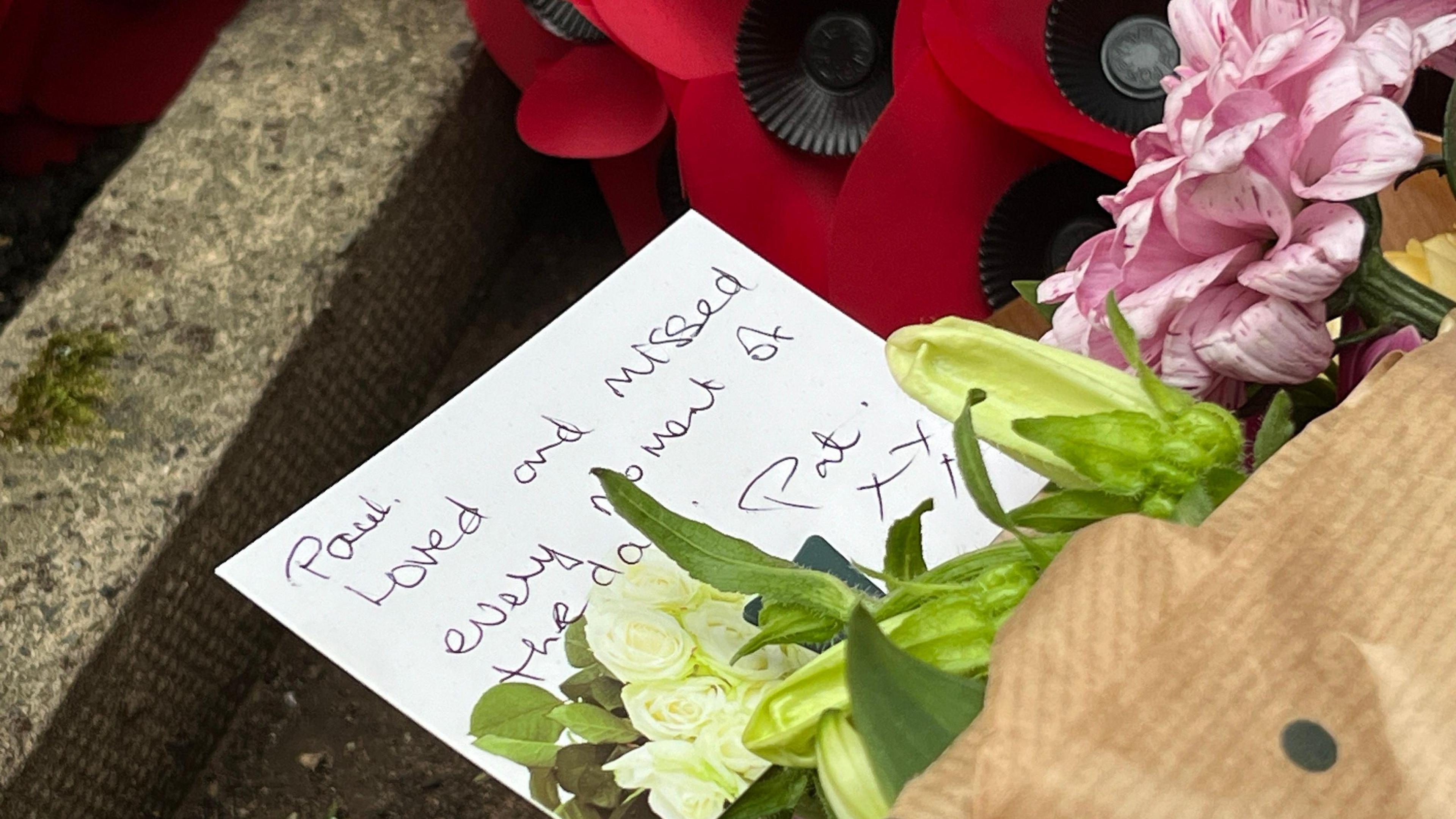
Bishop Watson called the bombings "a truly evil act" during the service
On Saturday, Ireland’s president Michael D Higgins called the Guildford pub bombings an “appalling atrocity”.
"We hold in our thoughts the five people who died, the bereaved families left behind and the many injured who continue to bear the scars of that savage act of violence,” he said.
Follow BBC Surrey on Facebook, external, on X, external. Send your story ideas to southeasttoday@bbc.co.uk , external or WhatsApp us on 08081 002250.
Related topics
- Published6 October 2024
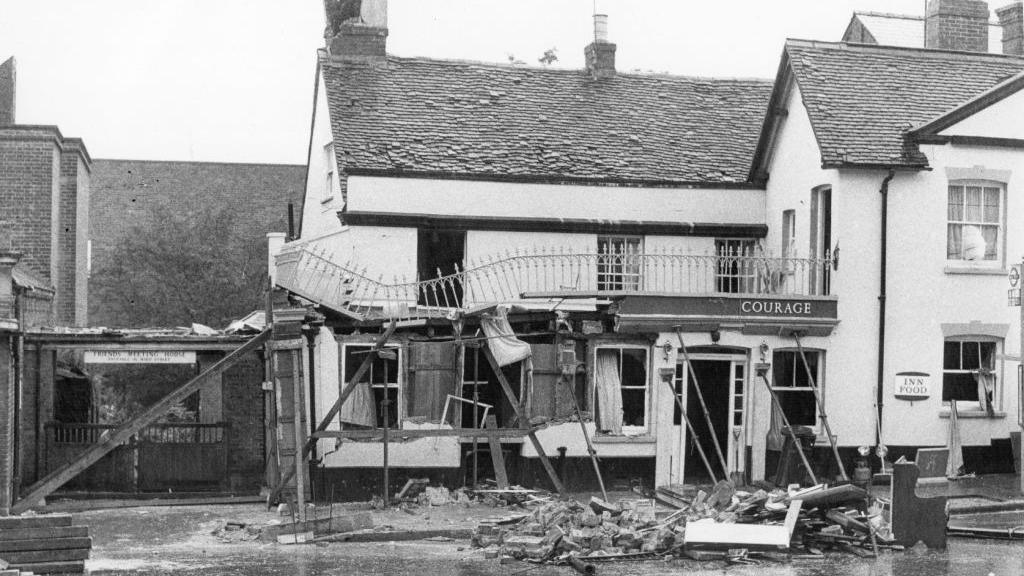
- Published5 October 2024
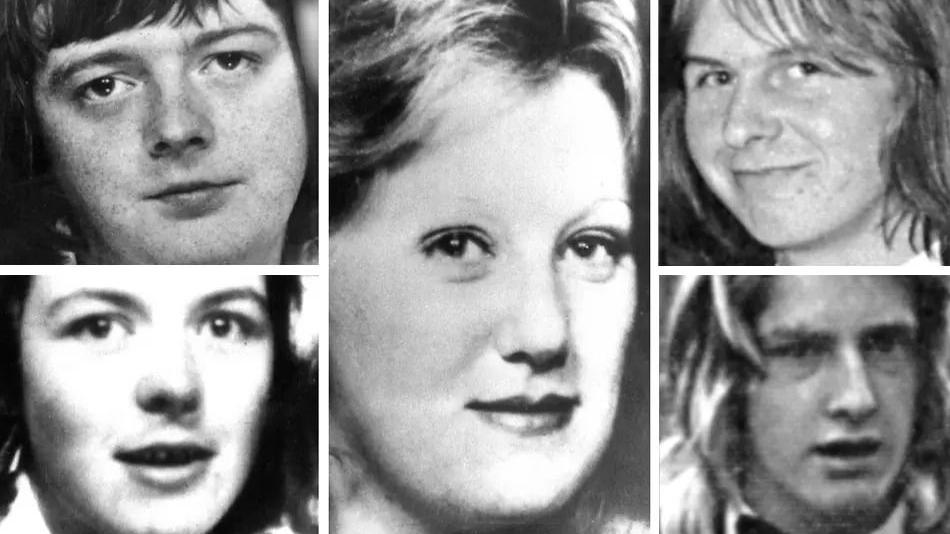
- Published4 April 2024
